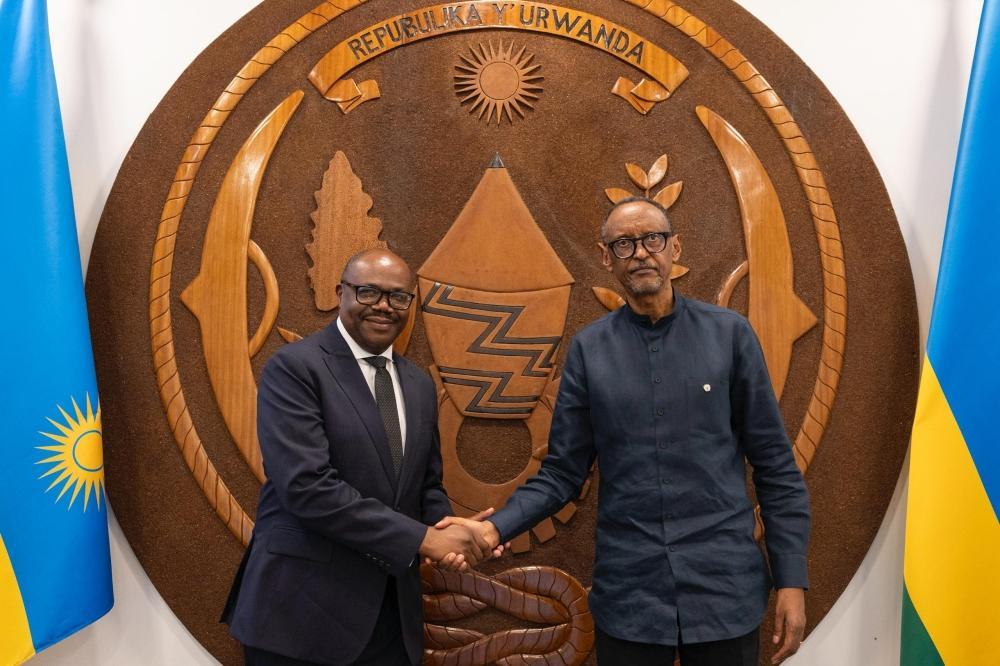Africa-Press – Rwanda. President Paul Kagame and newly appointed Prime Minister Justin Nsengiyumva met on Thursday, July 24, for “consultation and alignment on key national priorities,” according to Village Urugwiro.
Their meeting comes a day after the appointment of Nsengiyumva, who succeeded Edouard Ngirente.
Until his appointment, Nsengiyumva, an economist, was the Deputy Governor of the National Bank of Rwanda, a position he had held since February.
The appointment of the Prime Minister is in line with the Constitution of Rwanda.
Article 124 of the Constitution, which determines the vacation of the Office of the Prime Minister and the appointment of a new Cabinet, provides that the Prime Minister’s resignation or vacation of office for any reason leads to the resignation of all the other members of the Cabinet.
The Constitution provides that the Prime Minister is appointed and removed from office by the President of the Republic, while Ministers, Ministers of State and other members of Cabinet are appointed by the President after consultation with the Prime Minister.
Article 116 of the Constitution provides that Ministers, Ministers of State and other members of the Cabinet are appointed within 15 days following the appointment of the Prime Minister.
The Cabinet implements national policy agreed upon by the President of the Republic and the Cabinet meeting.
Upon his appointment, the new Prime Minister pledged to advance national priorities and to serve with humility and dedication. He expressed his gratitude to President Kagame for trusting him with the duties of the Prime Minister.
National Strategy for Transformation
Nsengiyumva, who holds a PhD in economics, inherits the second National Strategy for Transformation (NST2), a five-year development programme launched in 2024.
The NST2, which followed the seven-year NST1, outlines key targets in economic development, with Rwanda’s GDP per capita projected to reach $1,369 in 2029, up from $1,040 in 2023.
Under NST2, the government targets to facilitate the creation of 1.25 million productive and decent jobs by 2029, increase private investment from $2.2 billion in 2023 to $4.6 billion, and exports from $3.5 billion to $7.3 billion, among other goals.
Agricultural productivity will increase by more than 50 per cent, driven by an 85 per cent expansion in irrigated land, increased access to fertilizers and seeds, improved animal breeds, and a boost in domestic production of animal feeds.
In education, pre-primary enrolment is projected to increase from 35 per cent to 65 per cent. Access to quality healthcare will be increased by quadrupling the number of registered health workers and improving maternal, child, and infant health services.
By 2029, every household, school, and health facility in Rwanda is projected to have access to clean water, sanitation, hygiene services, and reliable electricity.
The government’s projection is to turn the country into a hub for high-quality, locally made goods that will boost the economy and create jobs, driven by significant investments in agriculture, manufacturing, and services.
For More News And Analysis About Rwanda Follow Africa-Press






